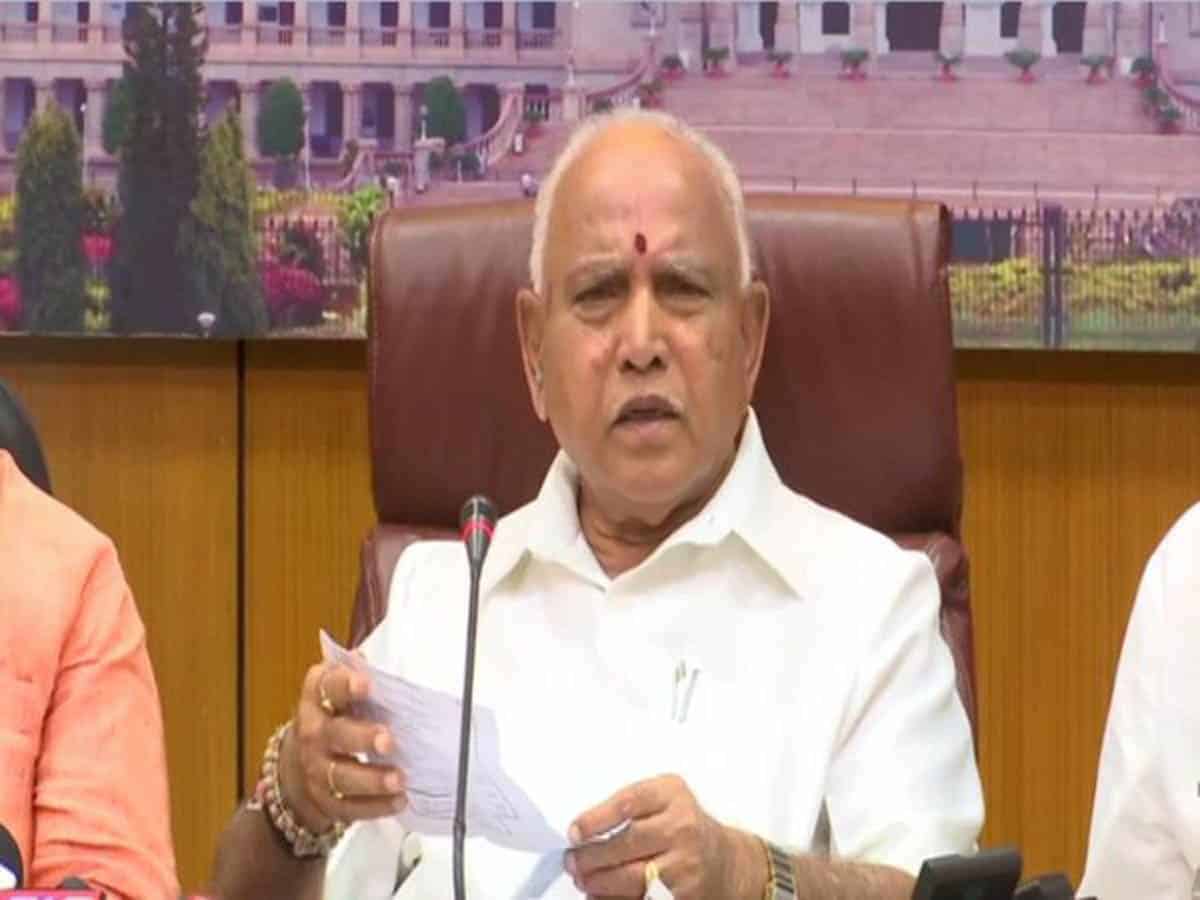Bengaluru: Cash-starved and debt-ridden Karnataka would benefit from 2 per cent increase in borrowing limit to 5 per cent of the gross state domestic product (GSDP), said Chief Minister B.S. Yediyurappa on Sunday.
“The increased borrowing limit of states from 3 per cent to 5 per cent of the GSDP will benefit states like Karnataka, which are distressed due to COVID-19. With more funds, we will be able to revive our economic system,” said Yediyurappa in a statement here.
Reacting to the fifth tranche of the Rs 20-lakh crore stimulus package to revive the COVID-19-hit economy Union Finance Minister Nirmala Sitharaman unveiled in New Delhi earlier in the day, Yediyurappa said Karnataka would make efforts to realize aspirations of a self-reliant India (Athma Nirbhar Bharat), envisaged by Prime Minister Narendra Modi and unveiled by May 12.
Extending support to state governments across the country, Sitharaman said the 2 per cent increase in borrowing limit would give Rs 4.28-lakh crore extra resource to states for fiscal 2020-21 only.
“Part of the borrowing will be linked to specific reforms, including recommendations of the Finance Commission. Reform linkage will be in universalisation of one nation one ration card’; ease of doing business, power distribution and urban local body revenues,” said Sitharaman on the occasion.
Reeling under severe resource crunch following revenue shortfall from tax collections and reduction in central grants, Yediyurappa earlier said the state would seek more share of funds from the 15th Finance Commission.
“Karnataka will soon petition the 15th Finance Commission to increase the state’s share from central taxes to make up for the reduction in allocation for fiscal 2020-21,” said Yediyurappa while presenting the state budget for this fiscal (FY 20-21) in the state legislative assembly here on March 5.
Yediyurappa holds the finance portfolio as an additional post.
The finance panel had reduced the state’s share by Rs 11,215 crore to 3.64 per cent (Rs 28,591 crore) for fiscal 2020-21 after the 14th Commission reduced it by Rs 8,887 crore from 4.70 per cent (Rs 39,806 crore) to Rs 30,919 crore for fiscal 2019-20.
The state also suffered Rs 3,000 crore compensation loss from the GST regime due to lower realisation of indirect tax collection by the Union finance ministry in the last fiscal (2019-20).
“The fifth tranche emphasizes on creating jobs to workers,Aimprovements in education and health sector, reforms to industrial laws and spur the state’s economic situation,” said Yediyurappa.
Terming the technology-driven education with equity, as a smart move, the chief minister said dedicated television channels would benefit thousands of children who cannot attend school due to the pandemic.
“The Prime Minister’s e-vidya programme will reduce pressure exerted by the formal system of education that we followed hitherto. E-education will bring in significant changes in the education sector,” asserted Yediyurappa.
Sitharaman said the e-vidya programme for multi-mode access to digital/online education would be launched soon.’Manodarpan’,an initiative for psycho-social support for students, teachers and families for mental health and emotional well-being, will also be unveiled at the earliest.
“New national curriculum and pedagogical framework for school, early childhood and teachers will be launched. National foundational literacy and numeracy mission for ensuring every child attains learning level and outcomes in grade 5 by 2025 will be unveiled by December,” said the finance minister.
On the Union finance ministry not initiating insolvency proceedings against companies and individuals becoming default/bankrupt due to Covid, the chief minister said the pro-active initiative would give relief to MSMEs (micro, small, medium enterprises) owners and revive the economy.
“Opening all sectors for private participation will provide new life to state-run institutions across the country,” added Yediyurappa.
The Finance Minister announced that minimum threshold to initiate insolvency proceedings has been raised to Rs 1 crore from Rs 1 lakh, which insulates MSMEs).
“Special insolvency resolution framework for MSMEs under section 240A of the Code will be notified soon,” Sitharaman added.

